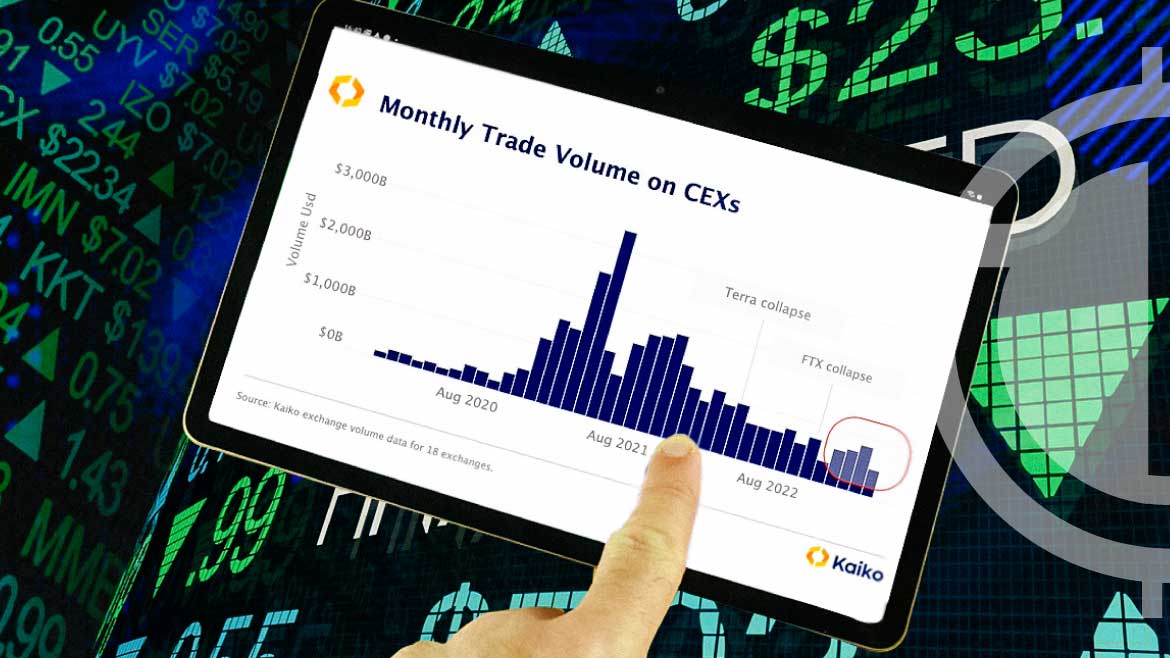The latest analysis on the Centralized Crypto Exchanges (CEX) indicated that their trading volume declined in April after three consecutive months that witnessed a steadily rising level. According to the data, the CEX’s trading volume in April has been estimated at around $500 billion, almost half the trading volume in March.
The blockchain analytics platform Kaiko shared insights on the substantial decline in the trading volume of CEXs that surpassed the pre-FTX levels in March:
Trade volumes on #CEXs declined in April after rising for three consecutive months and surpassing pre-FTX levels in March.
— Kaiko (@KaikoData) May 3, 2023
Overall, however, the crypto market remains significantly larger than it was before the 2020 bull run.#crypto #TradeVolume #liquidity #CEX pic.twitter.com/cmftFD3Qya
However, the platform added that though April remains low in terms of CEX’s trading volume, the level is comparatively higher than the level of 2020, stating “the crypto market remains significantly larger than it was before the 2020 bull run”.
Significantly, the drop in the CEX’s trading volume has been an impact of the digital assets’ retreat from their 2023 highs in mid-April. Though the crypto market had a gain of 50% since the beginning of 2023, over the previous weeks, the market hasn’t seen any substantial growth.
Notably, the blockchain research director, Lars0x, posted a series of Twitter threads detailing the fall in the trading volume of the Centralized Crypto Exchanges. According to Lars0x, April has shown a decrease in CEX spot volume by almost 43.8%, to $400.5 billion.
Further, the analyst pointed out that “the majority of the decrease is due to Binance adding back fees on BTC pairs”, picturing the leading position of Binance with a 71.6% advantage, while the exchanges Coinbase, Kraken, and BTSE hold only 8.7%, 4%, and 3.8% respectively.
Moreover, as per the data provided by the crypto data aggregator CoinGecko, Binance owns a 24-hour trading volume of nearly $10 billion, a level much higher than Coinbase’s $1.1 billion.






